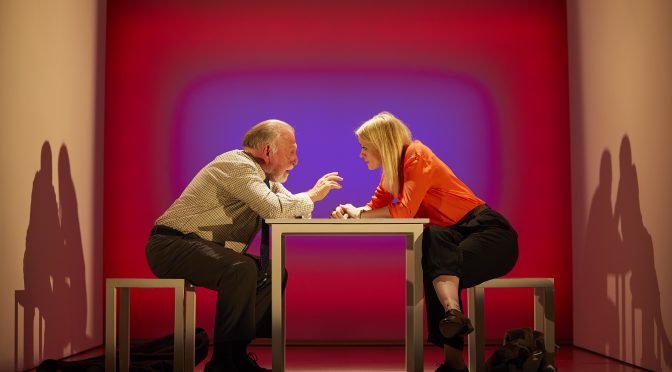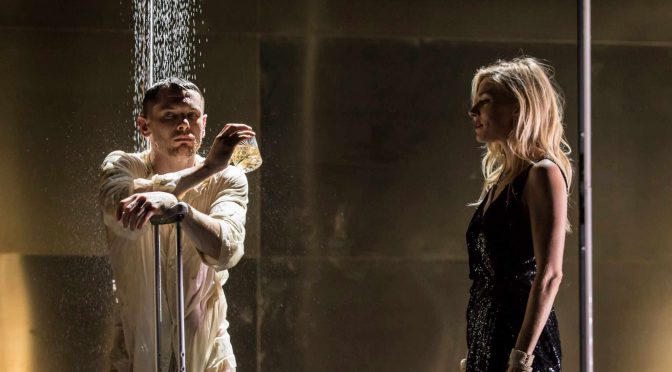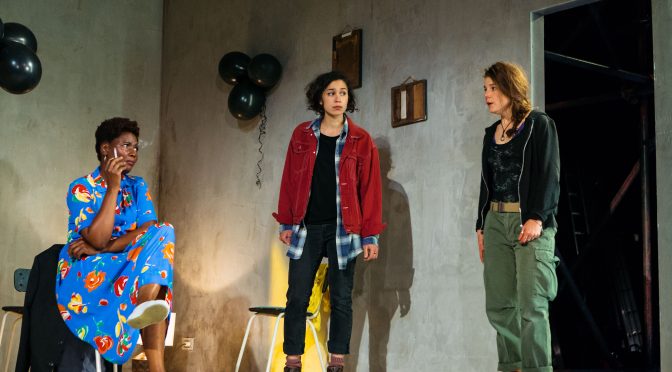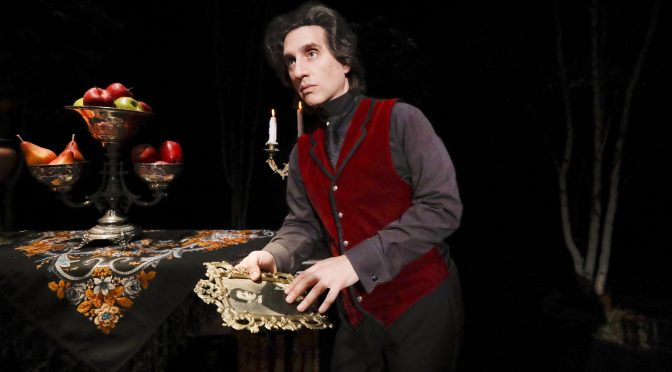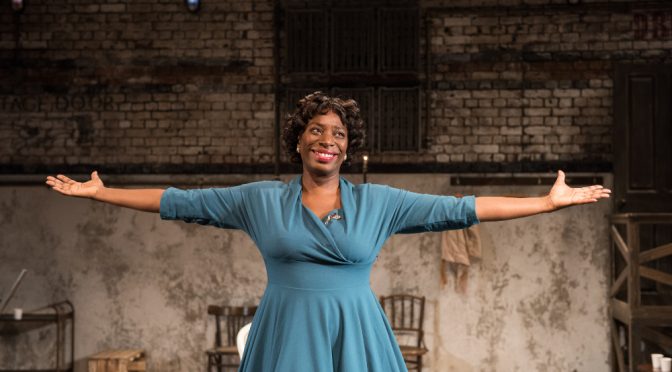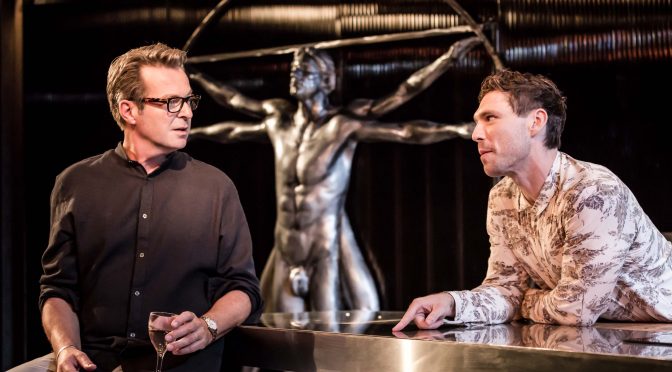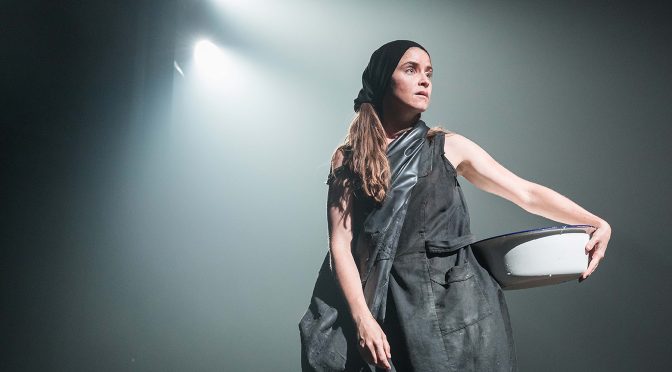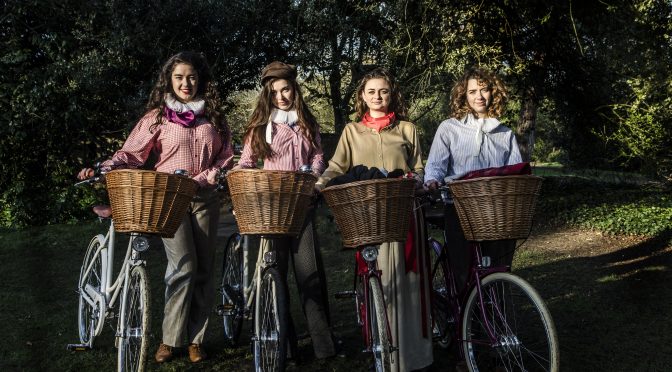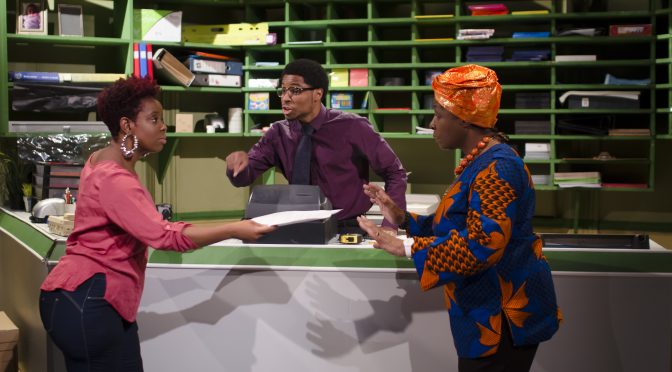Werner Heisenberg’s scientific theories provide the intellectual scaffolding of Simon Stephens’ new play. The principle – that measuring objects reveals an underlying uncertainty in physics – supplies a riff on the unexpected that’s lightly played alongside an unconventional romance. There’s little to boggle the mind here. Instead, this is a play full of laughs, affection… and a good deal of wisdom.
The relationship between Georgie and Alex is taboo-breaking because of their 33-year age gap. And both characters are pretty eccentric overall. The plot thickens (there’s a son to search for), but all the unusual behaviour is really about destabilising our expectations. It’s just two people getting to know one another – but, my, how this twists.
The couple meet by accident, of course, but each encounter contains the unexpected. It’s the distance between the characters that Stephens explores, akin to a comment Alex makes about music happening “between the notes”. Their age is one way they have different perspectives on their “shared experience”, and seeing both views makes this a two-hander of considerable depth and intimacy.
The play requires subtlety to work. Stephens’ frequent collaborator Marianne Elliott directs with an appropriately quiet confidence. The set by Bunny Christie is a stylish sliding affair with complementary mood lighting (from Paule Constable). But nothing distracts us from the quiet story of intricate observations. The performances from Anne-Marie Duff and Kenneth Cranham are superb. Both embrace their characters’ quirks to make the play entertaining. Cranham’s “wily old fox” is full of charm and intelligence, while Duff embodies Grace’s vulnerability and her quality of being “exhausting but captivating”. Uncertainty, as a principle to live by, is a peculiarly powerful idea. Few of us may be convinced by it, but this play presents the unpredictable in a charmingly determined fashion.
Until 6 January 2018
Photo by Brinkhoff Mögenburg

